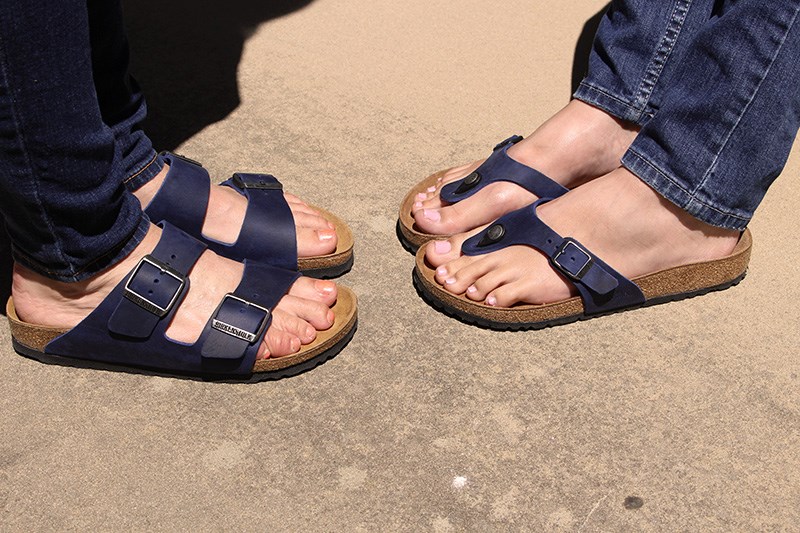

To preserve their image and take back control of business objectives, brands are beginning to pull their products out of large e-commerce sites and department stores.
Is there a shift taking place in the world of retail? Let’s open up the conversation.
Recently, Birkenstock announced that it would no longer be selling its products on Amazon nor with third party merchants that do business on the site beginning January 1, 2017.
In an internal memo obtained by CNBC, Birkenstock USA CEO, David Kahan, states, “The Amazon marketplace, which operates as an ‘open market,’ creates an environment where we experience unacceptable business practices which we believe jeopardize our brand.”
According to the announcement, the number of counterfeit Birkenstock products being sold on Amazon has startlingly increased in recent years. There has also been what has been referred to as “a constant stream of unidentifiable unauthorized sellers”¹ that sell Birkenstock products completely outside of the manufacturer’s pricing policies.


Due to the massive scale of the site, even beginning to police these sellers and counterfeiters is nearly impossible. This leaves these adverse trends to tarnish the brand’s image, which is precisely why Birkenstock is taking action. In cutting ties with Amazon, Birkenstock is regaining greater control of its brand, specifically noting that they will be shifting more focus towards brick-and-mortar retailers.
“We realize that many of our best brick-and-mortar retail partners play by the rules and have found incremental sales as third party sellers. We are appreciative of the way you ‘play the game’ and of the responsible support you have given to the brand,” says Kahan.¹
While Birkenstock’s stand may come to be seen as a game-changer, they are not the only company pushing back against Amazon to protect their brand.
Johnson & Johnson has clashed with Amazon over complaints that “Amazon isn’t doing enough to prevent people from selling damaged or expired J&J products on its website.” Other companies like German chef knife manufacturer Wüsthof stopped selling goods on Amazon after the site priced some products below the minimum advertised price.
As the objections to Amazon’s practices continue to rise, companies are recognizing that, to keep their brand image and business objectives healthy, they must exist in “clean” environments. For Birkenstock, this means placing its trust in the local retailers who are uniquely qualified to nurture them.
Related content: 5 Obstacles to Local Marketing Alignment Between Brands and Retailers >
While brands like Birkenstock are taking a stand against e-commerce sites like Amazon, luxury brands like Michael Kors, Coach, and Ralph Lauren have begun limiting their distribution of products through department stores. Their reasoning: focus on more boutique brick-and-mortar retail locations and retain a firmer grasp on brand image and pricing.
This is part of a larger trend in the growing disenchantment with department stores. Department stores significantly knock down the prices for brands’ products, which can lead to long-term negative effects on how a brand is perceived in the market. Additionally, consumers no longer shop the way that department stores sell, looking for a fuller, more authentic shopping experience. Naturally, this leads them to gravitate towards local specialty retailers.


Macy’s recently announced that it will soon be closing another 100 of its stores nationwide, following in the footsteps of other large retailers like Sports Authority, Sears, and more. With brands and consumers beginning to leave them behind in favor of brick-and-mortar storefronts, it’s not hard to see why.
Stan Tracht, president of outdoor apparel and goods store, Environeers, explains why their customers choose to shop with them as opposed to big-box retailers:
“The service we provide to our clients is tenfold that of big-box retailers. We know a lot about the products. We direct people on the right purchases so that they don’t waste their money. I think it really comes down to service. When you go into a big-box, it’s basically just about price and what they have in stock.”
Related content: 5 Ways Top Brands Are Striking Gold with Retailer Data >
These case studies are important in what their reverberations signify, but they are hardly the first signs of the dramatic shift occurring in the retail landscape.
Due to the rise of e-commerce and the sudden decline of larger retailers, it’s only becoming more challenging for companies to maintain control of brand image while also reaching local consumers in meaningful ways. Consumers want an authentic shopping experience that simply isn’t provided through distribution points like e-commerce and department stores.
These are just a few of the reasons why both are turning to local specialty retailers.
Specialty retailers expose brands in a premium way while providing an exceptional consumer shopping experience. They work with a respect for the brands they sell, priding themselves on expert product knowledge, superior service, and their influence in local communities.
Related content: Retailer Support Keeps New Balance One Step Ahead [Interview] >
In order to keep specialty retailers thriving in today’s digital landscape, necessary changes must be made to equip them with the tools and resources they need to both promote the brands they carry in-store and meaningfully engage with local customers.
The solution? Promoboxx, the only marketing platform that connects and aligns national brands and their local retailers to drive sales.
Join the ranks of leading brands like New Balance, GE Appliances, and Arc’teryx to better support your specialty retailers with a simple, effective digital marketing solution like Promoboxx. Engage more local consumers with brand content and drive sales. It’s that simple.
¹Source: CNBC, “Birkenstock quits Amazon in US after counterfeit surge”
5 Obstacles to Local Marketing Alignment Between Brands and Retailers >
Retailer Support Keeps New Balance One Step Ahead [Interview] >
Why Is National Advertising Not Effective for Local Retailers? >
5 Ways Top Brands Are Striking Gold with Retailer Data >
Al’s Sporting Goods Expands Digital Marketing Toolbox [Interview] >

